Is TV Too Complicated?
Has the digitization of entertainment -- DVRs, iPods, iPods, digital cameras, Netflix, and so forth -- transformed it from fun into work?
NYT columnist David Carr describes being overwhemed by “The Glut of Shows Unwatched.”
It seems that he was away for an episode of “Mad Men,” looked forward to watching it on his DVR, and discovered that he’d accidentally recorded the HD version but he doesn’t have HD equipment. (Memo to David Carr: Media critics should not be a decade behind the times in viewing technology. Seriously, my mother has HD.) He then tried unsuccessfully to get it from an on-demand service only to discover that the episode wasn’t yet available. So, he downloaded it from iTunes but had to watch it on his tiny iPad because he hasn’t invested in the $97 worth of equipment necessary to stream it to his TV.
Boo. Hoo.
At any rate, he finally gets to his point:
Television, which was once the brain-dead part of the day, had become one more thing that required time, attention and taste. I have fond memories of the days when there were only three networks and I could let my mind go slack as I half-watched Diane and Sam circle each other on “Cheers,” because that was pretty much the only thing on.
Did watching those shows raise my cultural I.Q. or put me in the thick of social media discussions over whether Snooki was actually the author of her own place in the cultural narrative? Um, no. But neither did it turn me into a cool hunter, worried about missing something, or a technologist, juggling devices and platforms the minute I got home.
In the dawning era of an always-on database of television, even shows I missed on purpose now find me. It was always a source of iconoclastic pride that I never saw a single episode of “Seinfeld” or “Friends” back when they were in their prime, but in the era of multiplying channels and ubiquitous choices, those shows have now hunted me down.
The media world today is less the paradox of choice than the inundation by options. Right now, waiting patiently next to my television, I have “The Girl With the Dragon Tattoo,” “Sin Nombre” and “Sunshine Cleaning.” The latter two movies have been sitting there for months, and I can’t remember the last time I used the DVD player for something not related to work.
My DVR is groaning at 79 percent of capacity, including that episode of “Deadliest Catch” from two months ago in which the captain dies. I ordered up episodes of “The Good Wife” for my iPad after hearing about it from friends and seeing that it got lots of Emmy nominations, but when I settled in on a long airplane ride to catch up, some guilty time with “Hot Tub Time Machine” got in the way.
That both recent and ancient television is, or will soon be, a few clicks away just adds to a buffet of media of all types I can’t possibly finish. My iTunes library would not fit on my new iPad because I have about 75 gigabytes of music, 20,000 songs or so, many of which I have yet to hear.
Our ability to produce media has outstripped our ability to consume it. The average photograph now gets looked at less than once simply because there is almost zero cost and effort to producing one.
And gone now is the guilty pleasure of simply staring at something mildly entertaining. We don’t watch TV anymore as much as it seems to watch us, recommending, recording and dishing up all manner of worthy product. Yes, it’s the New Golden Age of Television, but I miss the old idiot box. It made me feel less stupid.
It does seem that he’s met his intellectual match.
But, aside from the occasional technical frustration at shows inexplicably not recording or the like, it’s hard to fathom why anyone would want to go back to the days of three channels and no choices.
My 20-month-old daughter will simply never comprehend that world. It’s positively remarkable that we can easily offer her one of a dozen episodes of her favorite show, “The Backyardigans,” whenever we’re home. If she’s tired of it (or, more likely, we are) there’s always “Clifford: The Big Red Dog” or “Wonder Pets.” The fact that most episodes of those shows were made before she was born is of no consequence, nor is the vagaries of the programming schedule. And it’s a wonderful thing.
I’m only vaguely aware of what day of the week most of the shows my wife and I watch come on. It simply doesn’t matter: They’re right there waiting for us whenever the mood and opportunity presents itself. “Mad Men” apparently airs Sundays at 10 on AMC. If we’re not in bed by 10 on Sunday nights, we’re pretty close. But, hey, we can watch the show at 8:15 Wednesday evening if we want.
Ditto late night shows like “Colbert Report” and “Daily Show.” I’d simply never watch them, because they come on long after I’ve gone to bed. (Hey, I’m old. Also, I seldom sleep past 6, even on weekends.) But we can now use those to fill 15-20 minute blocks of spare time, whenever. Or catch the previous night’s episode as a wind down. Added bonus: No staying up late only to discover that they’re on vacation. Again! And I thought Johnny Carson got a lot of time off.
We still haven’t watched the last season of “Lost.’ So what? It’s there when we want it for a weekend marathon.
In addition to the wonderful ability to time shift, I essentially never just watch whatever happens to be on. Gone are the days when I’d sit on the couch for two hours flipping through the channels catching a bit of this and a bit of that, watching nothing, really. Sure, there was a serendipity to stumbling on something I’d never have seen otherwise. Mostly, though, it was wasted time without much real entertainment value. Now, there’s almost always something to watch.
Carr’s got a point with digital photos. It’s wonderful to be able to take 1000 snapshots to get the nine great shots from the event that you want to see again. Inevitably, though, you wind up keeping the other 993 because it’s too much trouble to go through them. But it’s still better than wasting an expensive roll of film and the time it took to take it for processing only to get the 2-3 shots worth keeping from the roll. Which weren’t as good as the shots you get now.
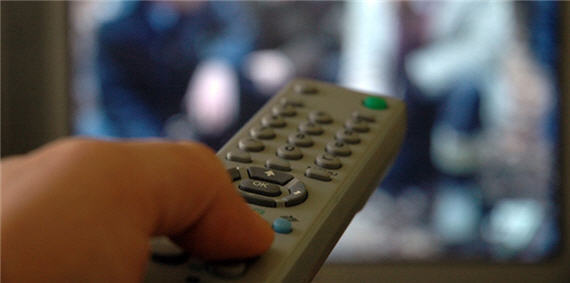

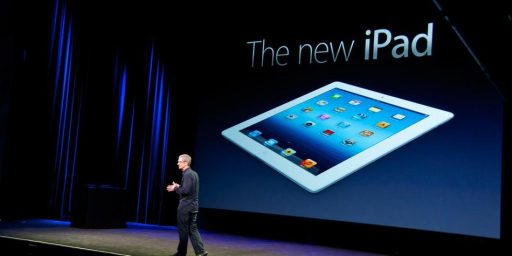

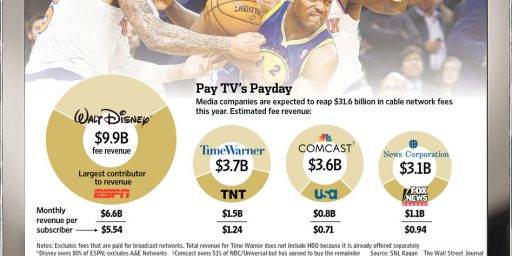
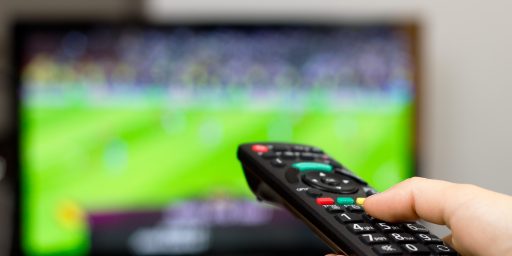
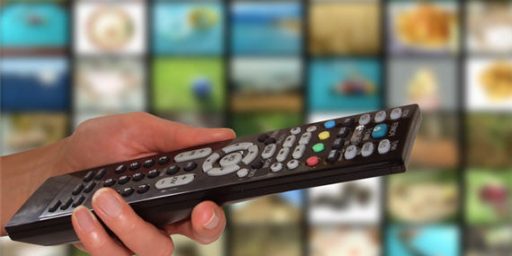
Like any technology the more you use it the better you become at using it. For those of us who watch only occasionally or watch only a few channels it can get real frustrating trying to find certain shows or channels. The fact they keep changing channel locations is what really drives me mad. Put all the channels together, not spread over 800 places.
I guess we were media rich growing up in the Los Angeles area with … nine channels? Something like that. I almost feel like the best days were early basic cable though, with $5/mo and maybe 30.
Now, I’d say cable TV has almost jumped the shark. They are playing their monopoly too hard. Too many play the same shows or movies all week. I guess they have the assumption that you’ll DVR, or that you are so bored you’ll watch anything.
As I understand the incentives, a cable channel wants to be popular enough to get in the cable tiers, but after that they have no reason to be better. They are being paid what they can negotiate. That’s mainly about helping the cable company create attractive tiers for up-sell, rather than high viewership (esp. in base tiers).
I expect that if the broadband/cable binding and monopoly was broken, something like “whenever TV” would rapidly evolve. Until then, we have to use our DVRs to dredge though a great deal of content for very few shows.
(I wonder what GoogleTV will prove to be? What I want?)
I keep visualizing some writer around 1952 lamenting the waste of having a phone that he never uses even though it costs him every month. Then, his daughter became a teenager….
Dear Mr. Carr, you’re old. You may use the technology but it was not created with you in mind.
The important questions is how can you tire of the Backyardigans?